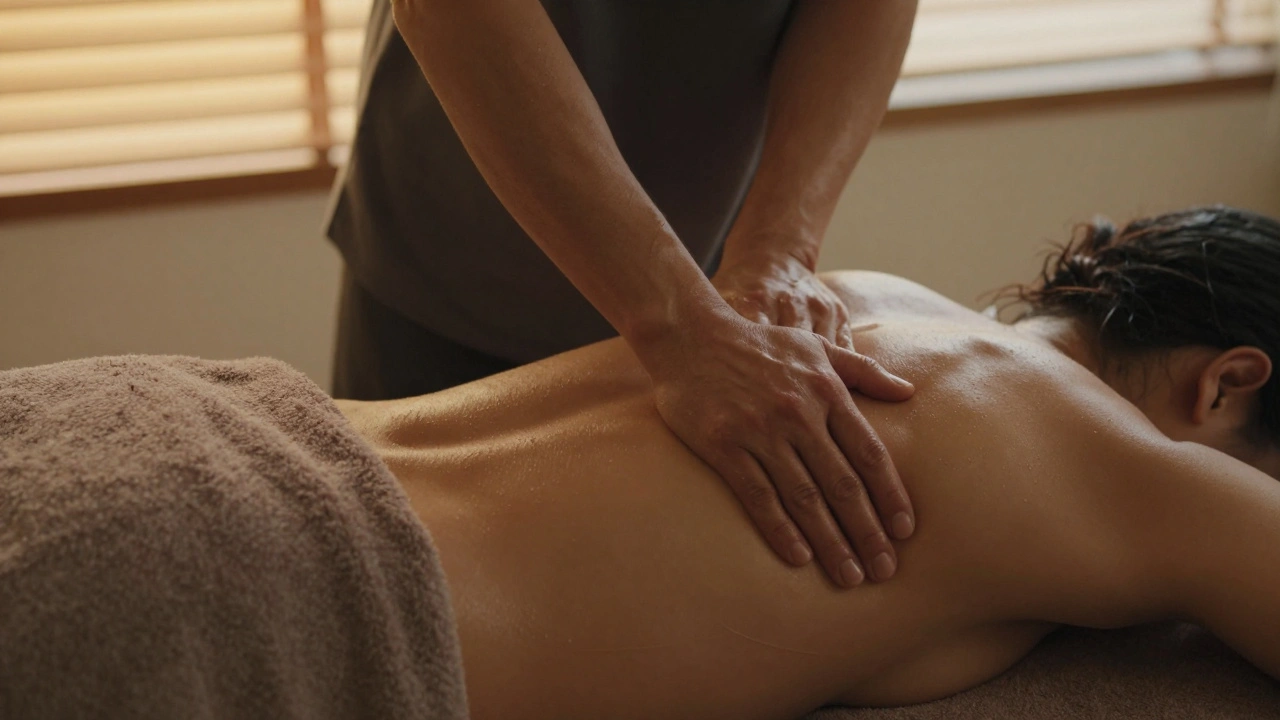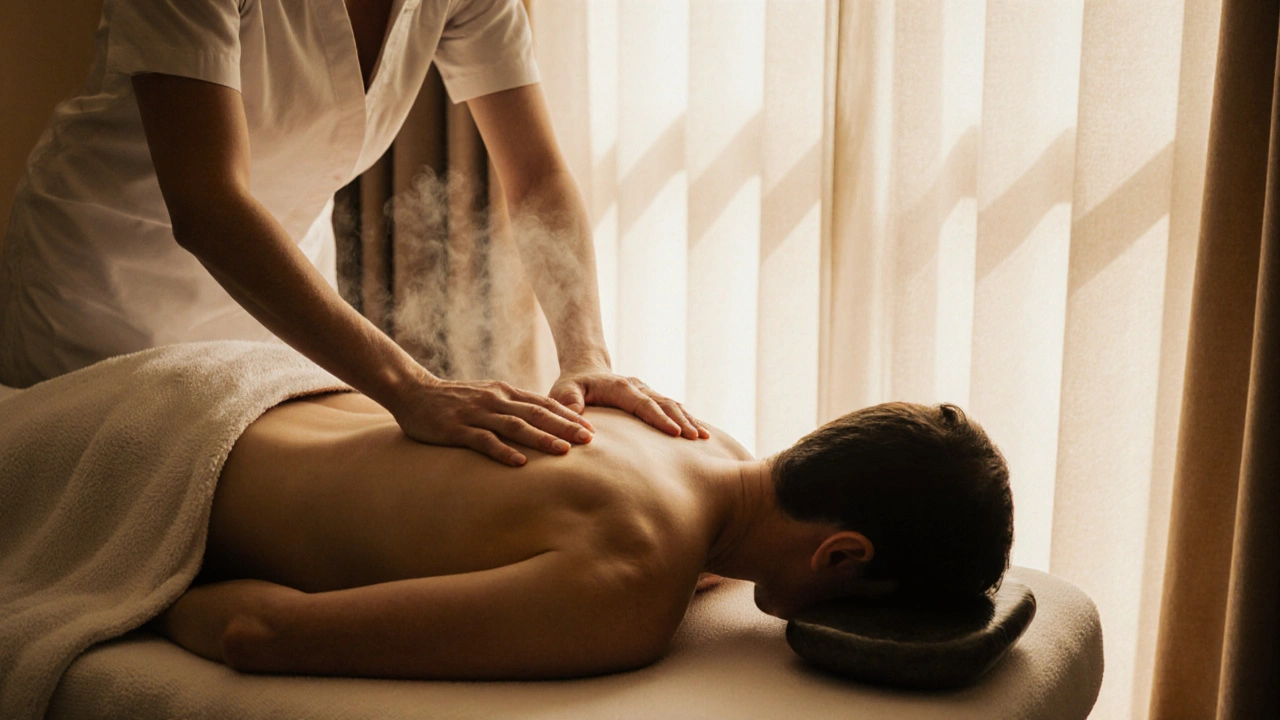Deep tissue massage isn't just about relaxation - it's the key to unlocking lasting flexibility. Learn how it breaks down stubborn muscle tension, improves movement, and helps you move freely again.
Muscle Tension Relief: Simple Massage Tips for London Life
Feel like your shoulders are carrying the whole city? You’re not alone. Heavy bags, long commutes, and desk jobs all pile on tightness that turns everyday movements into a chore. The good news? A targeted massage can melt that knotty feeling in minutes, not hours.
Before you book, know what’s actually happening under the skin. Muscle tension is the body’s alarm system – it tightens to protect an area that’s over‑used or stressed. When the tension stays, blood flow drops, and pain builds. The right pressure, stretch, and movement get the blood moving again, releasing the alarm and letting you move freely.
Why Massage Beats Stiffness
Massage does three things at once: it stretches fibers, pushes fresh blood through, and signals the nervous system to calm down. Deep‑tissue work digs into the tougher layers where knots hide, while Swedish strokes keep things light and relaxing. Sports massage blends both, focusing on the muscles you use most during exercise or a busy day.
Research from London clinics shows clients notice less pain after just one session of targeted pressure. The secret is consistency – a regular schedule keeps the muscles from locking up again. Even a 30‑minute session can reset your body’s tension map.
Top London Techniques for Tight Muscles
Deep Tissue Massage – Best for stubborn knots in the neck, upper back, and lower back. Therapists use slow, firm pressure to break down scar tissue and release chronic tightness.
Sports Massage – Ideal if you hit the gym, run, or play team sports. It combines stretching, compression, and trigger‑point work to speed up recovery and prevent injuries.
Thai Massage – Think of it as a moving stretch. The therapist guides your body through yoga‑like positions, which is perfect for lengthening tight hamstrings or shoulder blades.
Swedish Massage – If you prefer a gentler touch, this style improves circulation and relaxes the overall nervous system, making it a good follow‑up after a deep‑tissue session.
London’s vibe means you can choose where to go – a quiet studio in Central London, a mobile therapist who brings the table to your flat, or an outcall service that turns your living room into a spa. When you book, ask the therapist about their focus on muscle tension and whether they’ll tailor the pressure to your comfort level.
Here’s a quick checklist for your next appointment:
- Tell the therapist where you feel the tightest (neck, shoulders, lower back, legs).
- Ask for a mix of deep‑tissue and lighter strokes to avoid post‑session soreness.
- Stay hydrated before and after – water helps flush out toxins released during the massage.
- Schedule a follow‑up every two weeks if you have chronic tension; this keeps muscles from resetting.
Don’t forget that simple home tricks can keep tension at bay between sessions. A quick neck roll, a few shoulder shrugs, or a short stretch before bedtime can do wonders. Pair those moves with a regular massage routine, and you’ll notice the city’s hustle feels a lot lighter on your body.
Ready to try? Look for a therapist in London who mentions “muscle tension” in their service list, read a few reviews, and book a slot that fits your schedule. In a few minutes of focused pressure, you’ll give your muscles permission to relax, and your whole day will feel easier.
Discover how full body massage improves flexibility and mobility by releasing deep muscle tension and fascial restrictions. Learn what to expect, how to find the right therapist in London, and why it works better than stretching alone.
Deep tissue massage has gone from a secret weapon for athletes to a must-try for anyone slouching over a desk all day. This article breaks down exactly how deep tissue massage targets your muscles and helps you stand taller—without the pain some expect. You’ll learn how it works, the types of treatments you’ll find, what a session really feels like, and how to pick the right therapist. We’ll also dig into safety must-knows and cover how massage stacks up against other posture fixes. Got posture issues? This guide could change the way you think about massage.
Struggling with chronic pain can really drain your energy, but deep tissue massage offers real, hands-on relief without relying on medication. This article explains how deep tissue massage works, what makes it different, and why more people are turning to it for pain management. We’ll break down what happens during a session, what benefits you can expect, and key safety tips. Want to know if it’s right for you? Everything you need to make an informed choice is covered here.




